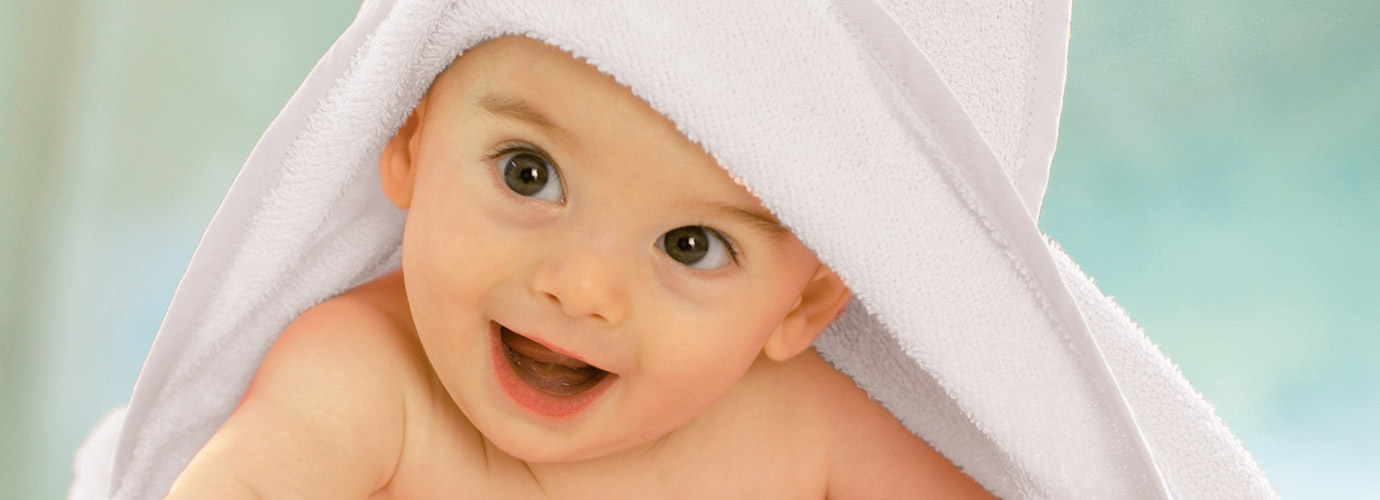Skin care in cases of neurodermatitis
Expert interview

with external lecturer Dr. med. Christina Schnopp Clinic and Polyclinic for Dermatology and Allergology Biederstein, Technical University of Munich, Germany
How should you care for highly sensitive skin that is prone to neurodermatitis?
Skin that is prone to neurodermatitis is generally dryer and more sensitive to environmental factors. This increased sensitivity is a hereditary and life-long condition which can be observed to varying severity.
By avoiding irritants and by regularly moisturising the skin, however, the structure of the skin can be improved, making it less prone to dryness and inflammation.
In mild cases of neurodermatitis it is often enough to moisturise once or twice a day using a regular skin care cream to prevent the symptoms altogether. Oil baths complement this very well, even though it is essential to also moisturise after bathing.
What should you look out for when choosing skin care products?
The selection of skin care products to treat skin that is prone to neurodermatitis/ experiencing an outbreak of neurodermatitis depends on many different factors and must be made on an individual basis.
One of the key deciding factors is the skin condition (is the skin very dry, moderately dry or already inflamed?), but the child’s age as well as the time of year are also relevant. Additional personal preferences concerning the scent and easy application of the product or how quickly it is absorbed should also be considered, because even the best skin care cream won’t work if there is a reluctance to use it.
Is it also possible to use commercial products?
Many patients whose skin is prone to neurodermatitis or who only suffer from a mild form do not necessarily need specialist care products/pharmacy products, explicitly designed for neurodermatitis. These products are often very expensive and the costs are not normally reimbursed through health insurance schemes. This is why commercially available products are particularly interesting in terms of cost.
The tolerability of the product should be dermatologically tested. It is also important to ensure that they do not contain substances that disturb the protective barrier of the skin, which is formed by the outer layer of the skin (barrier function).
Products for very dry skin are usually greasier and thicker than products for normal skin. Warning: Lotions with a low lipid content can make your skin even dryer!
Ideally, skin care products should not contain any substances that frequently trigger allergies.
Nappy area: Experience shows that the warm and moist environment inside nappies has a positive effect on the skin and that skin care products that are mainly used for the nappy area, such as nappy rash creams or wet wipes, cause hardly any irritation there.
How about treatment methods for children with neurodermatitis?
Regular application of moisturiser is one of the most important treatments for children with neurodermatitis.
If the skin becomes inflamed in spite of following a consistent skin care routine, local treatment with modern cortisone creams or topical calcineurin inhibitors helps to supress the inflammation and calm the resulting itch.
Treatment with anti-inflammatory creams should not be delayed for too long, as itching automatically leads to scratching which in turn further aggravates the inflammation and also allows bacteria to enter the skin and multiply, further worsening the condition.
When the skin condition improves, however, you should soon return to your regular skin care routine.
Sometimes it also helps to apply a thick layer of cream to the affected area and cover it with a moist dressing to calm the itch and to make the skin smooth again.
Apart from these external treatment measures it is also very important to identify and, if possible, avoid individual risk factors that can provoke flare-ups. These include:
- irritants such as clothing made from rough fabrics, or chlorinated water
- positive and negative stress
- infections, or allergens such as dust mites or cat hair
Some of these triggers can be easily avoided, while others can’t. In many cases, however, it is unclear what actually causes the flare-up.
Thank you very much, Dr. Schnopp, for this interview!


